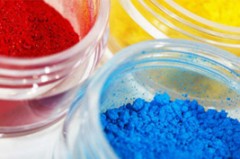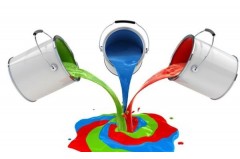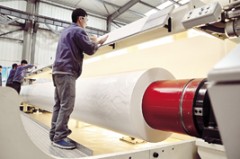Application
Nano Barium Sulphate – What Are Their Uses?
General plastics refer to plastics with large production, wide uses, good moldability, and low price, such as polyethylene (PE), polypropylene (PP), polyvinyl chloride (PVC), etc. Many products used in people’s daily life are made of these general plastics.
General plastics have the advantages of good moldability and low price, but their shortcomings such as easy aging and easy deformation make them inconvenient to use. Luckily, they can be modified by adding precipitated barium sulphate to overcome these shortcomings and meet the needs in practical applications.
The unique and excellent properties of precipitated barium sulphate let it become one of the most suitable functional modification materials for plastic products. Precipitated barium sulphate improves the chemical resistance, heat resistance, and product appearance of plastics.

So in addition to these functions, what specific roles does precipitated barium sulphate play in the process of plastic modification?
Improve the Rigidity of Plastics
Usually, the rigidity of plastics is poor. For example, the flexural modulus of pure PP is around 1000MPa, which is far from satisfying the needs of producing parts. After adding precipitated barium as filler, its flexural modulus can be more than 2000MPa, which shows that precipitated barium sulphate can improve the rigidity of general plastics.
Improve the Surface Hardness
The hardness of plastic is relatively low, so its surface is easily scratched which can affect the appearance and surface function of the plastic products. The hardness of inorganic fillers is usually higher than that of plastics. Adding inorganic fillers can greatly improve the surface hardness of plastics. Precipitated barium sulphate is a very popular inorganic filler with excellent performance.
Ensure the Size Stability of Plastic Products and Parts
Some general plastics have a high crystalline shortening rate, resulting in high shortening rate of their products. Such plastics are more likely to be deformed and have unstable sizes after coming out of the mold. Adding precipitated barium sulphate can greatly reduce the shortening rate of plastics and ensure the size stability of plastic products and parts.
Improve the Molding Processability
Fillers like precipitated barium sulphate can improve the fluidity of resin, thus enhancing the processability of plastics.

Improve the Strength of Plastics
The tensile strength of general plastics is not high on its own. After adding the appropriate amount of inorganic fillers, the tensile strength and flexural strength of the plastic can be improved so that the plastic can be more widely used in engineering.
Provide Practical Functions
Specific fillers can give some functions to plastics. For example, adding talcum powder or calcium carbonate to PP can improve the anti-static function and printing function of PP. Hollow glass beads added to plastics can improve the heat preservation function of plastics. Metal particles added to plastics can improve their thermal conductivity and electrical conductivity.
The appearance of precipitated barium sulphate is white amorphous powder with a relative density of 4.50(15 ℃) and melting point of 1 580 ℃. Due to its high refractive index (1.63~1.65), its color is white and has a certain degree of covering ability. It is almost insoluble in water, ethanol or acid, but soluble in hot sulfuric acid. It can be reduced to barium sulfide with carbon at high temperatures. Precipitated barium sulphate is an important basic chemical material. Its main use is as a raw material or filler for paints, coatings, inks, plastics, rubber, batteries, etc.
The unique and excellent properties of precipitated barium sulphate make it one of the most important functional materials indispensable for the plastic industry. China has abundant resources of barium sulphate and suppliers need to accelerate product upgrading to effectively promote its healthy development in the plastics industry.
Precipitated Barium Sulphate
Precipitated Barium Sulphate is a barium sulphate product produced by the mannite method with a purity of 98.8%. Our precipitated barium is one of the most popular type among overseas customers and is often used as a filler in the powder coating industry. Click here to learn more about its technical index. Contact us for a quote, or ask us to provide you with professional advice and free samples.




